Best desktop computer in 2024: Our picks for working from home, gaming, and more to fit your budget
From gaming to office work, these are the best pre-built desktops around.
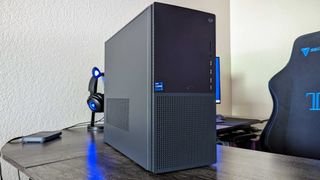
• The list in brief ↴
1. Best overall
2. Best budget
3. Best AiO
4. Best gaming
5. Best custom gaming
6. Best mini PC
• How to choose
A quality pre-built desktop PC is a great alternative to a laptop when you don't need the extra mobility. They're perfect for the home or office, providing plenty of performance and ports for any task.
Pre-built PCs range in price, design, and power. There are budget models ideal for homework, email, and web browsing, there are mid-range and compact models for offices or for retail locations, and there are high-end gaming PCs that can be customized to run your favorite games.
While you can usually build your own PC for less money, pre-built models have been narrowing the price gap, and you can find a quality device that's relatively affordable considering the hardware inside.
Buying a pre-built also takes the work of actually putting the PC together out of your hands, which a lot of users prefer. Not everyone has the time or knowledge to build a PC from scratch, and that's OK.
We've collected the best pre-built desktop PCs that we've tested, used, or reviewed from a range of categories to help you get exactly what you need.
The quick list
Need a desktop PC as soon as possible? This quick list of our top picks might have the info you need, but you can click through to a more detailed breakdown, including pros, cons, and review highlights where available.
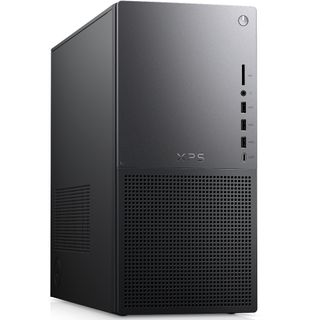
Best for most people
The XPS Desktop (8960) is a well-rounded pre-built PC that should be ideal for most users. It features an understated design loaded with ports, and a wide range of performance hardware is available inside to handle a variety of tasks.
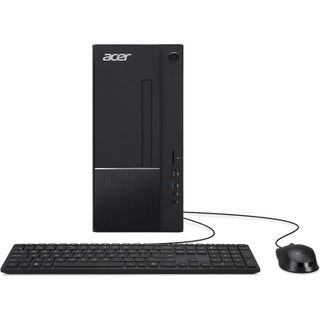
Affordable pick
Acer's Aspire desktop PCs are very affordable and more reliable than you might think; I've been using one for years connected to my living room TV. There are a few configuration options available with modest performance, but the real attraction here is the budget pricing.
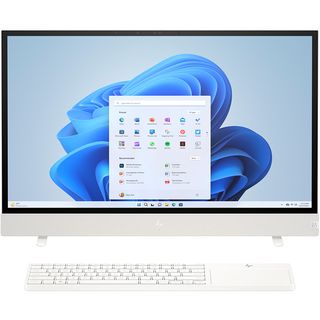
Best All-in-One
HP's Envy Move has moved the All-in-One design forward with a portable design, built-in battery, fold-out feet, and carrying handle on the back. It has a 24-inch QHD touch display, and it's available with 13th Gen Intel Core U-series CPUs with integrated graphics.
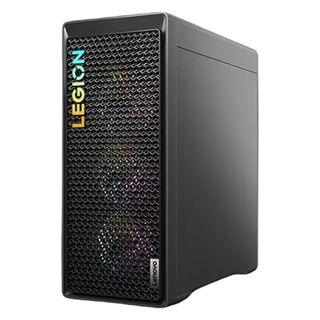
Best gaming
Lenovo's Legion Tower 7i (Gen 8) is one of the best gaming options if you aren't looking to get into boutique builds. It has a stylized case with lots of room for proper cooling, and you can customize quite a few pieces. Watch for big sales at Lenovo to get the best price possible.
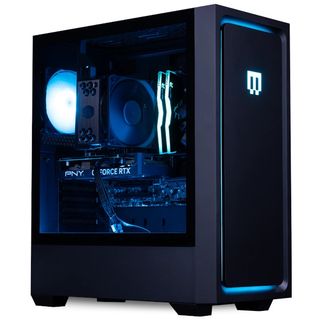
Best custom gaming
Maingear is a boutique PC builder staffed by enthusiasts. The MG-1 is available in a bunch of presets, but you can also customize deeply right down to the cables. It's built to a high standard (better than I could have done myself) and comes with a strong warranty and support.
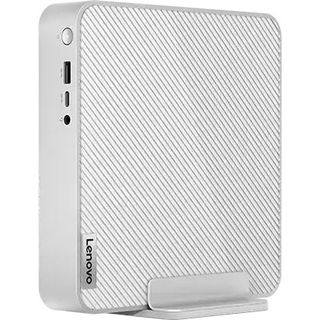
Best mini PC
Lenovo's IdeaCentre Mini (Gen 8) is a great pick if you want a PC that can fit just about anywhere. It's great for home, office, or retail use, thanks to respectable Intel Core H-series CPU performance and a generous selection of ports. It can even be upgraded after purchase.
The best desktop PCs in 2024
Why you can trust Windows Central
Let's now dig into more detailed breakdowns of each of our picks for best desktop PCs. We've recently reviewed all models at Windows Central, save for the Maingear MG-1 and Acer Aspire TC-1770. However, I've used and tested the latest MG-1 model and absolutely love it, while I still use an older Acer Aspire desktop model every day in my living room.
Best desktop PC
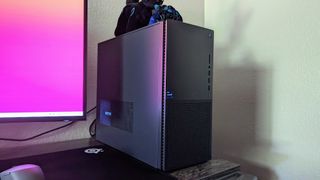
Specifications
Reasons to buy
Reasons to avoid
Dell's XPS Desktop (8960) will appeal to a lot of people thanks to its wide variety of configuration options, understated design, and generous selection of ports. Unless you want a PC that focuses primarily on gaming or has a screen built-in (as is the case with the HP Envy Move), the XPS Desktop should be your first consideration.
Even the most affordable units will handle life as the family computer, with homework, productivity, and streaming in mind. In our Dell XPS Desktop (8960) review, Zachary Boddy remarked that the PC "excels at productivity, creation, gaming, and everything else you can throw at it."
Prices start at a modest $800 for a model with a 14th Gen Intel Core i5-14600 processor (CPU), integrated UHD graphics, 8GB of DDR5 RAM, and a 512GB M.2 PCIe NVMe SSD. That price drops even lower when the PC is on sale, and Dell frequently hosts sale events.
Thanks to the generous configuration options, you can add up to an Intel Core i9-14900K CPU, NVIDIA RTX 4090 graphics card (GPU), 64GB of RAM, and 8TB of storage split up between two 4TB M.2 PCIe NVMe SSDs.
Most people aren't going to need this level of hardware, but it's there. I'd recommend checking out one of the gaming PCs listed here if you want that high level of performance, as they'll have superior cooling and power hardware.
They'll also do a much better job of allowing for future upgrades, as the XPS Desktop uses a funky internal layout with lots of proprietary parts. It's not a big deal for your average user who just wants to hit the power button and get to work.
Read our in-depth Dell XPS Desktop (8960) review
Best budget PC
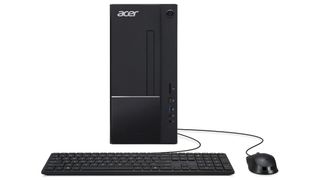
Acer Aspire TC-1770
Specifications
Reasons to buy
Reasons to avoid
Acer's Aspire TC-1770 is a refreshed version of a long-running series of PCs, one of which I still use to this day as my living room PC for TV control. Starting at about $450, you can't expect a premium build quality, but in my experience, these PCs hold up well. The case is relatively compact; it has lots of ports on the front and back, and there's even an optical drive for your legacy media.
The PC is equipped with a 13th Gen Intel Core i5-13400 CPU and integrated Intel UHD graphics, with up to 16GB of DDR4 RAM and a 1TB M.2 PCIe 4.0 NVMe SSD. That's enough to handle productivity work, email, homework, and other tasks around the house, making it a great option for the family PC.
Wireless connectivity is handled by Wi-Fi 6E and Bluetooth 5.3, and there's also an RJ45 Ethernet port on the back for a wired hookup. A mouse and keyboard are included, but they're not the best quality. It's understandable at this price. I'd recommend checking out some of the best desktop PC accessories to pick up some peripherals that you'll actually enjoy using.
Best All-in-One PC

Specifications
Reasons to buy
Reasons to avoid
HP's Envy Move sort of reinvented the All-in-One (AiO) genre, creating something that lives between a laptop and a desktop. At first glance, it's a classic AiO with a built-in display. However, it also has a built-in battery, carrying handle, and feet that rotate in and out.
These features allow you to use the Envy Move practically anywhere, and you can expect to get about four to five hours of battery life on a charge. In our HP Envy Move review, Editor Ben Wilson said, "It's close enough to perfection to recommend it to friends with children, and I have almost nothing negative to say."
The 23.8-inch touch display has a crisp 1440p resolution and a 75Hz refresh rate, with plenty of brightness and accurate sRGB color reproduction. You can control the PC here or with the wireless keyboard/touchpad accessory included.
HP offers up to a 13th Gen Intel Core i7-1355U CPU, integrated Iris Xe graphics, 16GB of LPDDR5 RAM, and up to 1TB of M.2 PCIe 4.0 NVMe SSD storage, but even lesser configs will be able to keep up with productivity work and streaming.
Read our in-depth HP Envy Move review
Best gaming PC
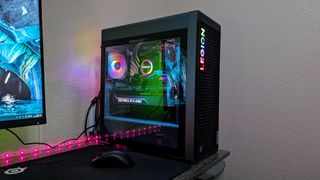
Specifications
Reasons to buy
Reasons to avoid
Windows Central's Zach Boddy was so impressed when reviewing the Legion Tower 7i (Gen 8) that they pinned it with a Best Award and said it "may just be the best mainstream, pre-built gaming PC you can buy right now."
Enthusiasts will still likely lean into a boutique custom build like that offered by Maingear, but the Legion Tower 7i remains a truly powerful option with a competitive price.
The PC can be configured with up to a 14th Gen Intel Core i9-14900KF CPU, NVIDIA RTX 4090 GPU, 32GB of DDR5-5200MHz RAM, and 2TB of M.2 PCIe 4.0 NVMe SSD storage, but there are lots of options for a more affordable build. Air and liquid cooling options are available, there's plenty of customizable RGB lighting, and it's all packed into a monster 34L case.
There is the potential for DIY upgrades in the future, though Lenovo does use some proprietary parts in the build that might get in the way. The case also lacks USB-C on the front, which is an odd omission for such a high-end build.
If you can live with these shortcomings and love the Legion design, you're going to have a great time gaming on this PC.
Read our in-depth Lenovo Legion Tower 7i (Gen 8) review
Best custom gaming PC
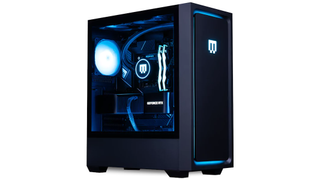
Maingear MG-1
Specifications
Reasons to buy
Reasons to avoid
Gaming enthusiasts who want a custom-built PC actually built by other enthusiasts should check out the Maingear MG-1. I've been using this PC for weeks, and beyond the stellar performance, I can't get over the attention to detail that went into the build.
Cable management is better than I could have achieved, and the case offers ample cooling to keep the components from throttling. The only drawback regarding the case is a lack of dust filters. Maingear uses standard hardware in almost all areas (with a custom case and custom AiO radiator), which means you won't struggle to perform DIY upgrades or even move all the internal hardware over to a new case.
The level of customization available on Maingear's website is also outstanding. You can pick presets for an easy checkout, but there's also a builder that lets you configure everything right down to the cables.
Prices start at about $1,200 for a model with 14th Gen Intel Core i5-14400F CPU, NVIDIA RTX 4060 GPU, 16GB of RAM, and 1TB M.2 PCIe 4.0 NVMe SSD, climbing all the way to about $4,000 for an Intel Core i9-14900K CPU, NVIDIA RTX 4090 GPU, 32GB of DDR5 RAM, and 2TB of SSD storage.
Best mini PC

Specifications
Reasons to buy
Reasons to avoid
Quality desktop PCs don't have to come in a big tower, and Lenovo's IdeaCentre Mini (Gen 8) is a great option if you need to save some space. It measures only about 7.5 x 7.6 inches, with a classy aluminum surround and plastic panels.
The PC offers USB-A, USB-C, and a 3.5mm audio jack on the front, with three more USB-A, one Thunderbolt 4, HDMI 2.1, DisplayPort 1.4, and 2.5G Ethernet on the back. Lenovo even managed to keep the PSU inside, so you're not dealing with a chunky power brick. The bottom panel can be removed, allowing access to RAM and SSD upgrades.
In our IdeaCentre Mini (Gen 8) review, Editor Ben Wilson said, "It looks great, with a design that breaks away from Lenovo's penchant for bland office-style aesthetics, and the vertical stand lends a bit of style to the benefits of improved airflow."
Lenovo offers up to an Intel Core i7-13700H CPU with integrated Iris Xe graphics, up to 16GB of DDR4 RAM, and up to 1TB of M.2 PCIe 4.0 NVMe SSD storage. We tested a unit with the Core i7 and found that it produces a bit too much heat to run unthrottled in such a small space. We recommend sticking with the Core i5 option to remedy this downside.
Read our in-depth Lenovo IdeaCentre Mini (Gen 8) review
How to choose the best desktop PC for you
The desktop PC market is massive, and choosing one device to use for the foreseeable future isn't always easy.
Choosing the right PC will ultimately come down to your budget, how you plan on using the PC, and what sort of form factor you desire.
For most people, the Dell XPS Desktop (8960) will have the right combination of competitive pricing and configuration options. Models start well below $1,000, and you can configure something well beyond regular expectations. I'd still recommend going with a dedicated gaming PC if you want ultra-performance, but there are plenty of stops along the way that might work well for you.
If you're looking for a full setup right off the bat, HP's Envy Move AiO includes a built-in touch display and a battery that allows you to use it anywhere. It's fine for full-time use on a desk, but the additional versatility might come in handy one day. If you are searching for ultimate mobility, our favorite laptops might have something preferable.
For those with limited space, something like the IdeaCentre Mini (Gen 8) won't take up much room. It nevertheless provides a wide selection of ports, respectable performance (stick with the Core i5 CPU to avoid throttling issues and save money), and a competitive price.
Choosing the right desktop PC for gaming
As mentioned, something like the XPS Desktop (8960) can be configured with up to an Intel Core i9 CPU and NVIDIA RTX 4090 GPU. That might signal to some that it's a good PC for gaming, but I'd be wary of putting that much hardware into a PC that's traditionally designed for productivity use.
Gaming PCs built specifically for gaming mainly feature improved cooling abilities and a more standard internal layout, which makes it easier to upgrade in the future. Buying something like the XPS Desktop for gaming will likely result in frustration when your hardware can't keep itself cool or you want to move different parts in and out.
If you'd like a high-end gaming PC, Lenovo's Legion Tower 7i (Gen 8) is a great mainstream option with enough power to run any game at a high resolution. The Maingear MG-1 remains a solid pick for enthusiasts who want granular customization and a build that uses standard parts for easy DIY upgrades in the future.
Be sure to check out our favorite gaming laptops if you'd rather keep your fun mobile at all times.
Get the Windows Central Newsletter
All the latest news, reviews, and guides for Windows and Xbox diehards.

Cale Hunt brings to Windows Central more than eight years of experience writing about laptops, PCs, accessories, games, and beyond. If it runs Windows or in some way complements the hardware, there’s a good chance he knows about it, has written about it, or is already busy testing it.
